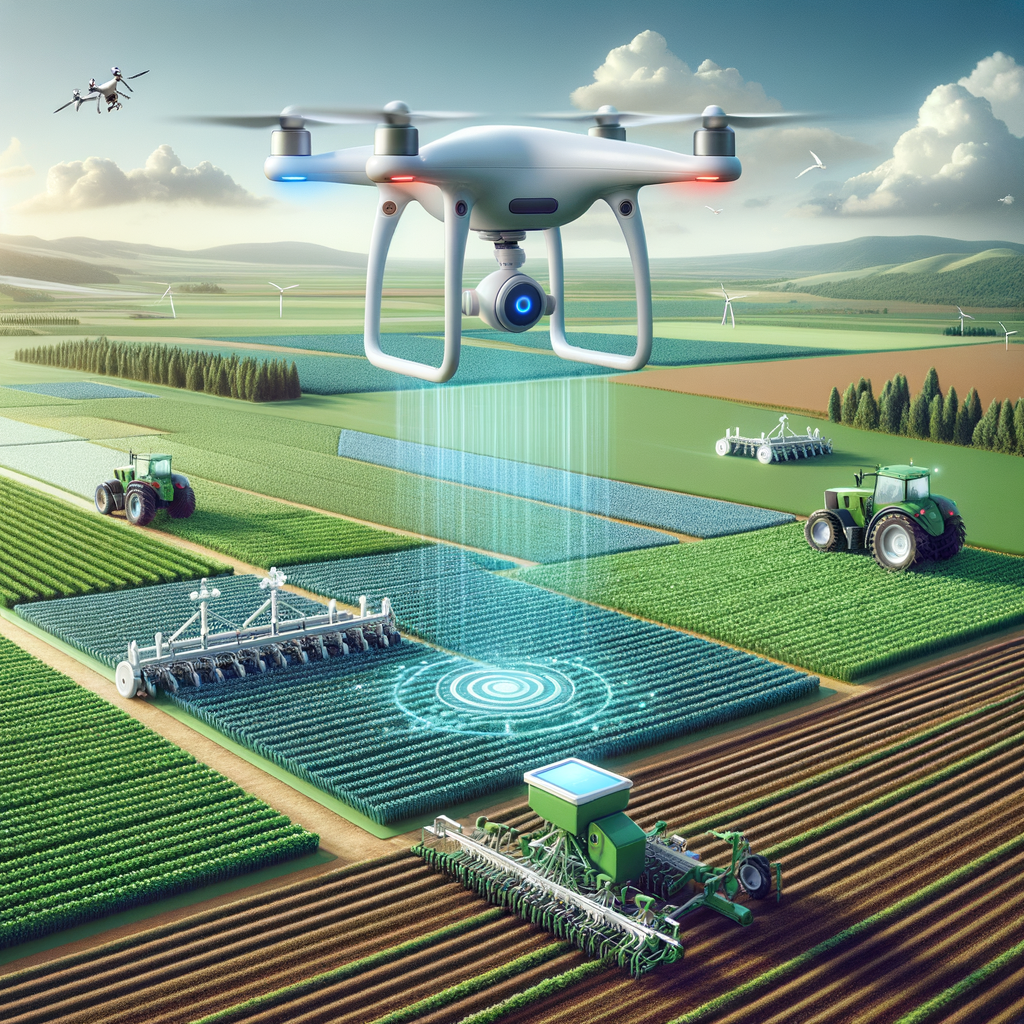
AI Meets Agriculture: Cultivating the Future of Farming
Explore how AI is transforming the agricultural landscape, from precision farming techniques to autonomous machinery and smart crop management. This blog delves into the technological advancements and innovations that are revolutionizing food production, increasing efficiency, and promoting sustainability in agriculture.
AI Meets Agriculture: Cultivating the Future of Farming
Introduction
The agricultural industry, one of the oldest and most essential sectors, is experiencing a technological revolution. With the advent of Artificial Intelligence (AI), farming practices are evolving rapidly, promising to increase efficiency, productivity, and sustainability. This transformation is not only crucial for meeting the demands of a growing global population but also for addressing the challenges related to climate change and environmental conservation.
The Role of AI in Modern Farming
Precision Agriculture
AI technologies enable precision agriculture, a farming management concept that revolves around observing, measuring, and responding to inter and intra-field variability in crops. By utilizing AI algorithms, farmers can optimize resources such as water, fertilizer, and pesticides, ultimately reducing costs and environmental impact.
Autonomous Machinery
Automation in agriculture is another significant development facilitated by AI. From self-driving tractors to drones that analyze crop health, autonomous machinery helps reduce manual labor and increase productivity. These machines are equipped with sensors and cameras that gather data, which AI systems then process to make informed decisions.
Smart Crop Management
AI-powered tools can predict weather patterns, detect diseases, and monitor soil conditions, aiding farmers in making more informed decisions. Machine learning models analyze vast amounts of data to recommend the best planting and harvesting times, improving yield and quality.
AI Innovations Revolutionizing Agriculture
Drone Technology
Drones equipped with AI systems can monitor crop health by capturing high-resolution images and using computer vision to analyze them. This technology helps in identifying issues such as disease outbreaks or water stress, allowing for timely interventions.
Robotics and Automation
Robotics in agriculture is another area where AI is making strides. Robots can handle tasks such as planting, weeding, and harvesting with high precision and efficiency. This automation reduces the reliance on manual labor and human error.
AI-driven Forecasting Models
Predictive analytics powered by AI can forecast weather conditions, commodity pricing, and market trends. This information is crucial for farmers to plan their operations and make strategic decisions that maximize profit and minimize risk.
Challenges and Considerations
Data Privacy and Security
The adoption of AI in agriculture involves handling large volumes of data, raising concerns about data privacy and security. Ensuring that sensitive information is protected from cyber threats is crucial for the successful implementation of AI solutions.
Skills and Training
There is a need for comprehensive training programs to equip farmers with the skills necessary to operate and maintain AI technologies. Bridging the knowledge gap will ensure that the benefits of AI are fully realized across the industry.
Environmental and Ethical Impacts
As AI continues to drive agricultural innovation, considerations around its environmental and ethical impacts are paramount. Ensuring sustainable practices and responsible use of technology is critical for maintaining ecological balance and food security.
The Future of AI in Agriculture
The potential for AI to transform agriculture is immense. With continued research and development, AI technologies will become even more sophisticated, offering new solutions for enhancing productivity and sustainability. The future of farming will likely see even greater integration of AI, with smart farms becoming the norm.
Conclusion
AI is set to revolutionize agriculture by providing farmers with the tools they need to adapt to the challenges of modern farming. As the world grapples with climate change and food security concerns, integrating AI into agriculture offers a path toward more efficient, sustainable, and productive farming practices. By embracing these technologies, we can cultivate a more sustainable future for generations to come.